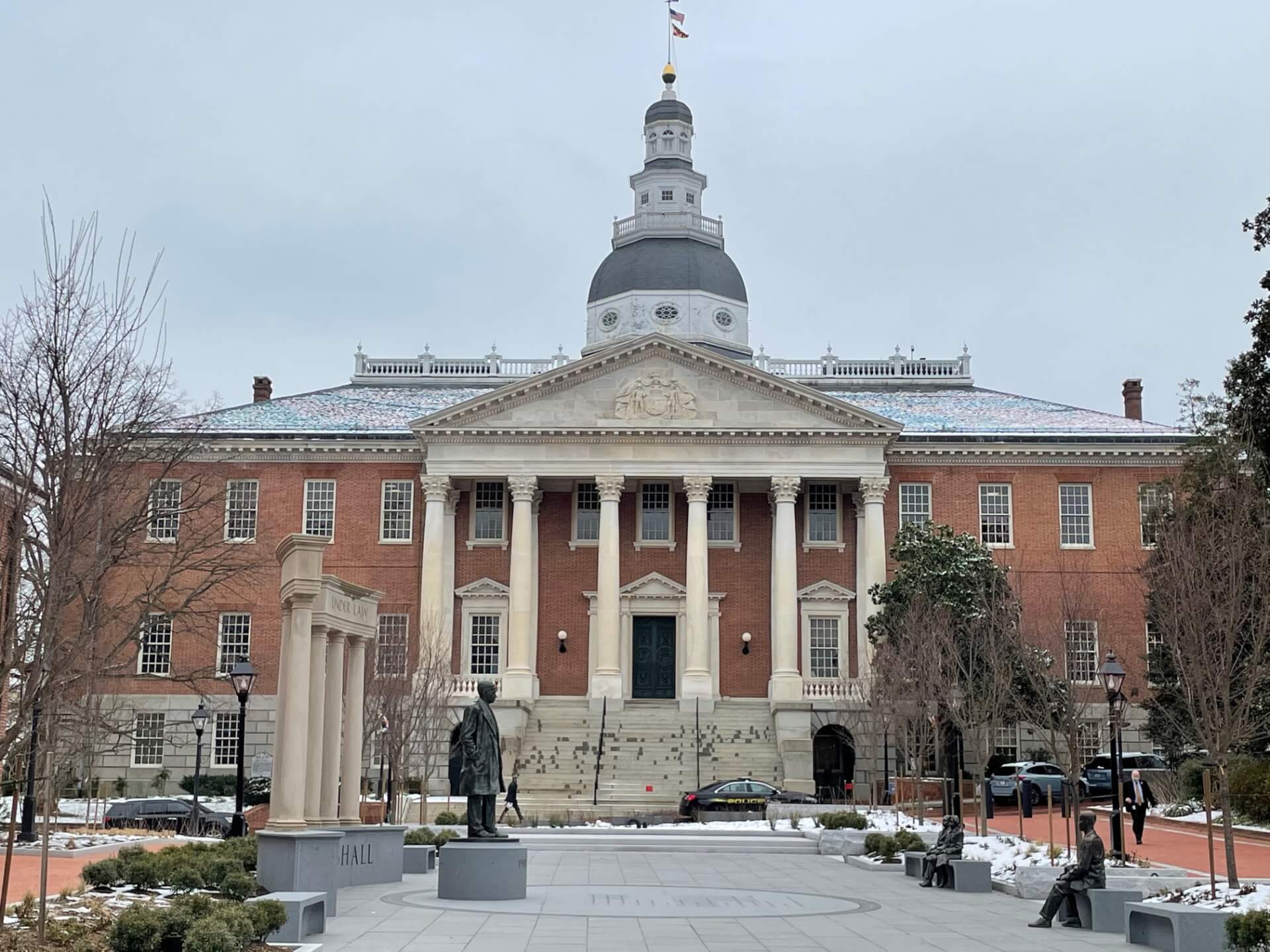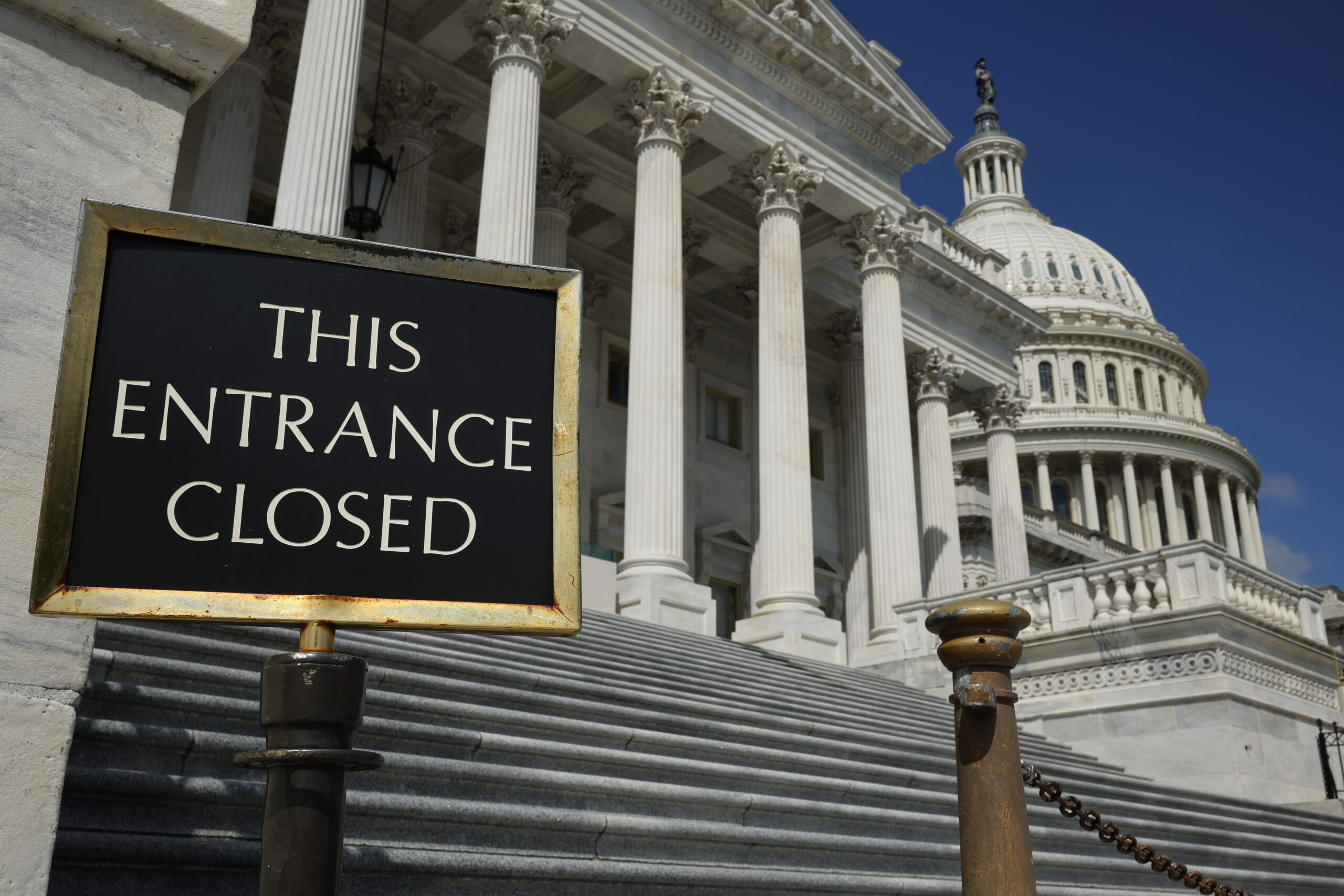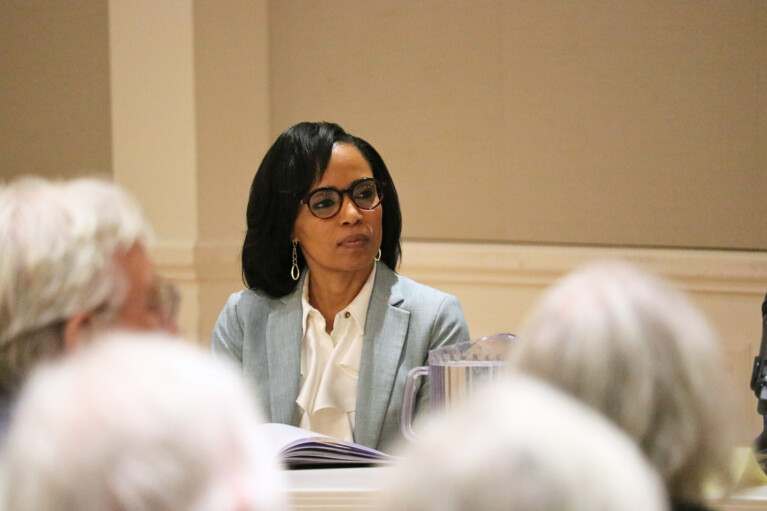In Environmental Justice Push, Lawmakers Look to Decrease Harmful Toxins and Reform Government Responses

In taking a broader look at social justice and equity issues, Maryland lawmakers are considering a series of bills to mitigate harmful environmental toxins and policies.
After a series of brutal police encounters and calls for racial justice this summer, Senate President Bill Ferguson (D-Baltimore City) created the Senate Advisory Workgroup on Equity and Inclusion to evaluate environmental justice, health disparities and economic opportunity in the state. It was chaired by Sen. Melony Griffith (D-Prince George’s).
Environmental justice refers to the idea that no population, regardless of race, national origin or income, should bear a disproportionate share of negative environmental consequences.
The workgroup concluded that environmental justice in Maryland could be improved by: lowering the acceptable level of lead in Maryland school water, revamping the state’s largely ineffectual Commission on Environmental Justice and Sustainable Communities, altering mold assessment standards and updating environmental repair programs.
At least four bills have been introduced in the legislature to deal with those issues.
Curtailing Lead Levels in School Water
Even small amounts of exposure to lead can cause memory loss and stomach pain, while prolonged exposure can lead to more serious conditions like anemia and brain damage, according to the Centers for Disease Control and Prevention. Those effects can be especially acute in children.
Maryland began testing school water supplies after a 2017 law from then-Del. Stephen B. Lafferty (D-Baltimore County), which revealed that around 3,000 schools had water fixtures with lead levels at 20 parts per billion or higher.
Senate Bill 546 would lower the actionable amount of lead levels in school drinking water from 20 parts per billion to 5 parts per billion. Under the bill, schools that measure more than 5 parts per billion on or before June 2021 would have to make remedial repairs by summer 2022.
In 2018, the U.S. Environmental Protection Agency acknowledged that there was no scientific basis behind the 20 parts per billion number, Del. Jared Solomon (D-Montgomery), the House sponsor of the bill, said in a bill hearing earlier this month.
For school systems that are concerned about the remedial costs, bill sponsor Sen. Cory McCray (D-Baltimore City), told the Education, Health and Environmental Affairs Committee on Wednesday that schools can simply turn off taps that are over 5 parts per billion until they can restore them. School systems can request funds from the Healthy School Facility Fund to assist with those costs.
Iterations of the 2021 bill have cycled through the General Assembly since 2019. Last year, the measure passed the Senate 46-0 and was unanimously voted out of the House Environment and Transportation committee, but stopped short as lawmakers rushed to adjourn once the COVID-19 pandemic spread to Maryland.
Dayana Bergman, a mother living in Baltimore County, told the Senate committee that when she was a volunteer coach in the school system, she noticed that children would often complain that their stomachs hurt after they drank from the outside water fountains.
Others said reducing acceptable levels of lead in schools was long overdue.
“We found that up to 20% of the collateral damage to a child’s brain, to a fetus in a pregnant woman and to an adult can come from lead in water, so we have to treat this with the urgency that is needed,” said Ruth Anne Norton, the president of the Green and Healthy Homes Initiative. “The impact of lead poisoning is irreversible” and “we are long past due on this work,” she said.
Revamping the State’s Environmental Justice Commission
According to the Senate workgroup findings, the state’s environmental justice commission had not had a dedicated a section to make policy recommendations to the Governor, one of its duties, since its 2012 annual report. And commissioners only met twice in 2020.
Senate Bill 674, sponsored by Sen. Sarah K. Elfreth (D-Anne Arundel), would change the makeup of the commission to reflect the “racial, gender, ethnic and geographic diversity of the state” and include more representatives from local government, academia and communities impacted by environmental justice issues.
“There’s been some shortcomings with the current commission — not meeting regularly, not filing its reports on time and not being particularly representative of the very communities it’s intended to serve,” Elfreth told the Education, Health and Environmental Affairs Committee on Wednesday. “This bill is trying to get it back to its mission.”
Under Elfreth’s measure, the commission must meet at least six times a year, at least once in a rural area and once in an urban area. It would also have to coordinate with the Commission on Climate Change and use updated data sets and mapping tools to review state laws related to environmental justice. And after gathering public input, the commission would have to propose a list of projects that address environmental justice issues.
During the hearing, Monica Brooks, the founder of Concerned Citizens Against Industrial CAFOs (concentrated animal feeding operations) asked for amendments that would include more direct representation from affected communities and for the commission to focus on cumulative environmental impacts.
“Upon speaking out against environmental atrocities many of our residents were ostracized attacked ridiculed harassed or fired from jobs. We sought local government help but found little to none,” Brooks said. “It’s time to level the playing field so the cries of the frontline and fenceline communities are validated and addressed.”
The commission should also be engaging with not only the Maryland Department of the Environment, but also with the Office of Minority Health and Disparities, Attorney General’s office, Department of Transportation and other state agencies, said Sacoby Wilson, an associate professor at the University of Maryland School of Public Health.
Tightening Mold Standards in Rented Housing
Maryland currently does not have a process to routinely test buildings that may unknowingly have mold in them, Sen. Obie Patterson (D-Prince George’s) said in a bill hearing last month.
Because of the lack of standards, renters have no legal recourse when they have a mold problem that their landlord did not address, said Lisa Sarro, an attorney in the Anne Arundel County office of Maryland Legal Aid.
Typically, a renter can go to court and file a rent escrow to push a landlord to make their home healthier. But to maintain their case, a person must prove that their conditions amount to health and safety violations, which is difficult since there is no clear mold standard to begin with, Sarro said. As a result, many residents do not get their cases heard, she said.
One had to rely on a local code enforcement inspection for her escrow case, which concluded it was “possibly” mold. “If it looks like mold and smells like mold, it makes you sick like mold, why isn’t it reported as mold in this code enforcement violations report?” Zafar Shah of the Public Justice Center said.
Senate Bill 70 would require the Maryland Department of the Environment, Department of Health, Department of Housing and Community Development and the Department of General Services to establish uniform mold assessment standards, clearly defining what is and is not safe. Local jurisdictions would also have to conduct annual mold inspections at all rented residences, which would be paid by the landlord.
An iteration of this legislation was introduced last year but did not get out of committee.
But landlord representatives blasted the bill for not taking into account a tenant’s possible role in mold growth, such as failure to notify the landlord of a leak or not properly ventilating their bathroom while taking a shower, said Aaron Greenfield of the Maryland Multi Housing Association.
The cost of implementing 700,000 mold inspections in rental residences across the state every year is significant and can be passed on to the tenant in the form of higher rent, said Lisa May of Maryland Realtors. The bill also contains a meaningful change to current eviction procedures, as a mere failure to complete a mold inspection could trigger a justified claim of harm to a tenant, May said.
The Senate Environment Subcommittee will have a work session on SB 70 on Thursday.
Supplemental Environmental Projects
When institutions, businesses or individuals violate environmental law, they usually face penalties or fines. Although these help deter from future environmental violations, it does not directly address the harm caused to the environment, Sen. Chris West (R-Baltimore County) said in a bill hearing earlier this month.
Instead, offenders can also choose to engage in a supplemental environmental project, or an environmentally beneficial project that violators of the environment can undertake as part of a settlement.
These projects range from planting trees in neighborhoods where the violation occurred to installing high performance air filtration systems in schools and providing funding for asthma treatment.
Senate Bill 446 would require the Maryland Department of the Environment to maintain a database of potential supplemental environmental projects (SEP).
“Supplemental environmental projects result in an improved environment where the violation occurred, rather than merely money paid into the state Treasury,” West said.
MDE must also seek input for environmentally beneficial projects from communities that have disparately borne the brunt of environmental injustices, as well as ensure that the chosen project equals the cost of the violation.
SB 446 received no oral or written opposition.




 Creative Commons Attribution
Creative Commons Attribution